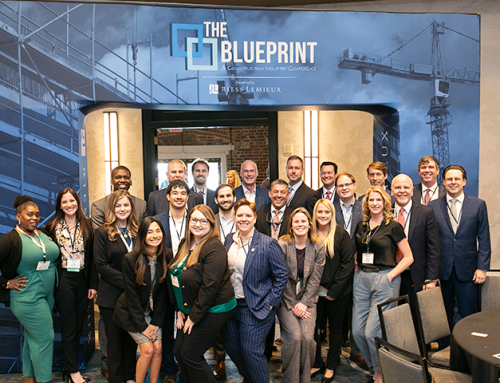 Mid-Am. Milling Co., LLC v. United States Dep’t of Transportation, No. 3:23-CV-00072-GFVT, 2024 WL 4267183 (E.D. Ky. Sept. 23, 2024).
Mid-Am. Milling Co., LLC v. United States Dep’t of Transportation, No. 3:23-CV-00072-GFVT, 2024 WL 4267183 (E.D. Ky. Sept. 23, 2024).
US Court applies the Fourteenth Amendment to preclude the US Department of Transportation or other government agencies from enacting policies on public bid projects that classify bidders by race or gender.
Authors: Jonathan S. Forester and Trey A. Talley
In Mid-Am. Milling Co., LLC v. United States Dep’t of Transportation, the United States District Court for the Eastern District of Kentucky considered the constitutionality of race- and gender-based rebuttable presumptions in contracts let out by the United States Department of Transportation (“DOT”) pursuant to the Disadvantaged Business Enterprise (“DBE”) Program. Plaintiffs filed suit seeking an injunction to permanently enjoin the Defendants from applying race- and gender-based classifications in the federal DBE program, arguing that they were denied the opportunity to compete for transportation contracts on equal footing.
As a preliminary matter, Defendants argued that Plaintiffs did not have standing to bring this action. The Court held that to have standing, a plaintiff must have (1) suffered an injury in fact, (2) that is fairly traceable to the challenged conduct of the defendant, and (3) that is likely to be redressed by a favorable judicial decision. The Court found that Plaintiffs were “able and ready” to bid on DOT funded contracts, and thus suffered an injury. Regarding traceability and redressability, Defendants argued that eliminating the race- and gender-based presumptions would not redress the Plaintiffs alleged injury because even absent those presumptions Plaintiffs still do not qualify for the DBE program. However, the Court found that the presumptions must have an impact on the number of DBE, noting Congress’ previous rejection of any amendment to the DBE program that would eliminate them. The Plaintiffs therefore had the requisite standing.
The Court then considered the four preliminary injunction factors: (1) whether the movant has shown a strong likelihood of success on the merits; (2) whether the movant will suffer irreparable harm if the injunction is not issued; (3) whether the issuance of the injunction would cause substantial harm to others; and (4) whether the public interest would be served by issuing the injunction.
The Court first considered the race-based presumption. The Fourteenth Amendment guarantees equal protection to all persons regardless of race, color, or nationality. Government policies that classify people by race are presumptively invalid, and any exception must survive strict scrutiny. Defendants argued that the DBE program targets and seeks to remedy past, intentional discrimination in the transportation industry, which the government had a hand in. However, the Court held that the Defendants failed to show a compelling interest to justify the race-based presumption in the DBE program, finding that the evidence submitted by the Defendants was too broad and pointed to societal discrimination against minority-owned businesses generally without offering much evidence of past discrimination against the specific groups that are granted preference under the DBE program. The Court found that even if the Defendants could establish a compelling interest, the race-based rebuttable presumption is not narrowly tailored. The Court held that because the DBE program’s racial preferences are not tethered to a foreseeable conclusion, the race-based presumption is not narrowly tailored.
The Court next considered the gender-based presumption. For the gender-based classification to stand, the Defendants must provide an exceedingly persuasive justification. To meet this burden, the Defendants must prove that (1) a sex-based classification serves important governmental objectives, and (2) the classification is substantially and directly related to the government’s objectives. The Court found that the evidence presented by the Defendants failed to show that women-owned contractors regularly bid for DOT funded contracts but fail to receive them because of blatant discrimination. Thus, the Defendants failed to meet their burden of proving that the rebuttable presumption serves an important government interest, and therefore, cannot show that the DOT’s gender-based classification is appropriately tailored to the government’s objectives. The Court found that the Plaintiffs were likely to win on the merits of their constitutional claim.
After finding that the Plaintiffs were entitled to a preliminary injunction, the Court considered the appropriate scope of the injunction. The Court briefly discussed an ongoing debate within the judiciary concerning the scope of injunctive relief in the context of nationwide injunctions. To that end, the Sixth Circuit has previously held that “an injunction limited to the parties can adequately protect the plaintiffs’ interests while the case is pending disposition on the merits.” Kentucky v. Biden, 57 F.4th 545, 557 (6th Cir. 2023). Thus, the Court held that the preliminary injunction shall apply to the Plaintiffs in the states within which they operate.
This case is significant in that it follows the Supreme Court’s landmark decision in Students for Fair Admissions, Inc. v. Pres. and Fellows of Harvard College, 600 U.S. 181, 209 (2023). That controversial decision precluded college universities from taking race or gender into account during the admissions process. Mid-Am. Milling Co., LLC v. United States Dep’t of Transportation follows that decision and shows a trend in the U.S. courts toward precluding businesses and public entities from factoring race and gender into selection processes, expanding the Students for Fair Admissions decision to apply to bidders on public bid construction projects.



